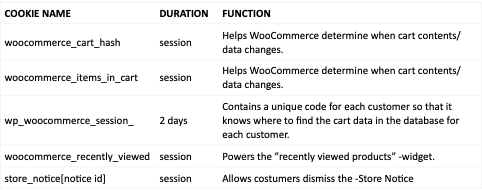Cookie and Privacy Policies
General provisions
- This Privacy Policy sets out the principles governing the collection, processing and storage of personal data. Personal data is collected, processed and stored by the controller of the personal data. (Basseinimeistrid Ltd) (hereinafter referred to as the “data controller”).
- For the purposes of this Privacy Policy, a data subject is a customer or other natural person whose personal data is processed by a data processor.
- For the purposes of this Privacy Policy, a customer is anyone who purchases goods or services from the website of a data processor.
- The data processor complies with the data processing principles set out in the legislation, including processing personal data lawfully, fairly and securely. The data controller is able to confirm that the personal data have been processed in accordance with the law.
Collection, processing and storage of personal data
- The personal data collected, processed and stored by the data controller are collected electronically, mainly through the website and e-mail.
- By sharing his or her personal data, the data subject grants the data processor the right to collect, organise, use and manage the personal data that the data subject directly or indirectly shares with the data processor when purchasing goods or services from the website for the purposes specified in the Privacy Policy.
- It is the data subject’s responsibility to ensure that the data he or she provides is accurate, correct and complete. Knowingly providing false information will be considered a breach of the Privacy Policy. It is the data subject’s responsibility to inform the data processor immediately of any changes to the data provided.
- The data controller shall not be liable for any damage caused by the provision of false information by the data subject to the data subject or to third parties.
3. Processing of customers’ personal data
- A data processor may process the following personal data of a data subject:
- First name and surname;
- Date of birth;
- Phone number;
- E-mail address;
- Delivery address;
- Current account number;
- Payment card details;
In addition to the above, the data controller is entitled to collect data about the customer that is available in public registers.
The legal basis for the processing of personal data is Article 6(1)(a), (b), (c) and (f) of the General Data Protection Regulation:
(a) the data subject has given his or her consent to the processing of his or her personal data for one or more specific purposes;
(b) processing of personal data is necessary for the performance of a contract concluded with the data subject or in order to take steps at the request of the data subject prior to entering into a contract;
(c) the processing is necessary for compliance with a legal obligation to which the controller is subject;
(f) the processing is necessary for the purposes of the legitimate interests pursued by the controller or by a third party, except where such interests override the interests of the data subject or the fundamental rights and freedoms for which the personal data must be protected, in particular where the data subject is a child.
Processing of personal data for the purposes for which it is processed:
- Purpose of the processing – security and safety. Maximum period of retention of personal data – in accordance with the time limits specified by law.
- Purpose of the processing – order processing. Maximum retention period – 1 year.
- Purpose of the processing – to ensure the functioning of the e-shop services. Maximum retention period – 1 year.
- Purpose of processing – customer management. Maximum retention period – 1 year.
- Purpose of processing – financial activities, accounting. Maximum period of retention of personal data – in accordance with the time limits specified by law.
- Purpose of processing – marketing. Maximum retention period – 1 year.
- The data processor has the right to share customers’ personal data with third parties, such as authorised data processors, accountants, transport and courier companies, companies providing transfer services The data processor is the controller of personal data. The data processor transfers the personal data necessary for the execution of payments to the processor Montonio Finance UAB.
- When processing and storing personal data relating to a data subject, the data controller shall implement organisational and technical measures to ensure the protection of personal data against accidental or unlawful destruction, alteration, disclosure and any other unlawful forms of processing.
- The data controller shall keep the data of the data subjects for a period depending on the purpose of the processing, but not longer than 5 years.
Data subject rights
- Data subjects have the right to access and inspect their personal data.
- The data subject has the right to be informed about the processing of his or her personal data.
- The data subject has the right to complete or correct inaccurate data.
- Where a data controller processes personal data of a data subject on the basis of the data subject’s consent, the data subject has the right to withdraw his or her consent at any time.
- To exercise their rights, data subjects can contact the e-shop’s customer support at info@basseinimeistrid.ee.
- The data subject may lodge a complaint with the Data Protection Inspectorate to protect his or her rights.
Final provisions
- These Data Protection Terms and Conditions have been drafted in accordance with Regulation (EU) No 2016/679 of the European Parliament and of the Council on the protection of natural persons with regard to the processing of personal data and on the free movement of such data and repealing Directive 95/46/EC / EC (General Data Protection Regulation), the Personal Data Protection Act of the Republic of Estonia and the legislation of the Republic of Estonia and the European Union.
- The data controller has the right to amend the data protection conditions, in whole or in part, by informing data subjects of changes via the website www.basseinimeistrid.ee .
WooCommerce cookie policy
Cookies are small text files that are stored on your computer or other device when web pages are loaded in a web browser.
They are widely used to “remember” you and your preferences, either through a “session cookie” for a single visit, or a “persistent cookie” for multiple repeat visits. They provide a consistent and efficient user experience for visitors and perform important functions, such as allowing users to register and stay logged in.
Cookies may be set by the site you visit, called “first-party cookies”, or by third parties, such as those who provide content or offer advertising or analytics services on a website, called “third-party cookies”.
Both websites and HTML emails may also include other tracking technologies such as web beacons or pixels. These are usually small transparent images that provide us with statistical information for similar purposes as cookies. They are often used together with cookies, although they are not stored on your computer in the same way. If you disable the use of cookies, web beacons may still load, but their functionality is limited.
WooCommerce uses cookies in several ways.
Cookies depend on the specific features enabled in the store. Cookies are active when a user interacts with one of these features or enables administrative functions in the store dashboard (/wp-admin).
The details are set out in the tables below, which list the different cookies that are set for store users using the WooCommerce plugin.
The e-shop front page:

Google Analytics
Cookies and similar technologies used for analytics help collect data that allows services to understand how you interact with a particular service. This insight allows services to improve content and create better features that enhance your experience.
Some cookies and similar technologies help sites and applications understand how their visitors use their services. For example, Google Analytics uses cookies to collect information on behalf of the companies that use the Google Analytics service and to provide them with website usage statistics, without being able to personally identify individual visitors. The main cookie ‘_ga’ used by Google Analytics allows the service to distinguish one visitor from another and lasts for 2 years. All websites that use Google Analytics, including Google services, use the ‘_ga’ cookie. Each ‘_ga’ cookie is unique to a particular object, so it cannot be used to track a particular user or browser on incomplete websites.
Google’s services also use “NID” and “_Secure-ENID” cookies for Google Search and “VISITOR_INFO1_LIVE” and “__Secure-YEC” cookies for YouTube for analysis. Google’s mobile applications may also use unique identifiers, such as “Google username”, for analysis.
